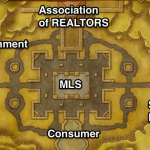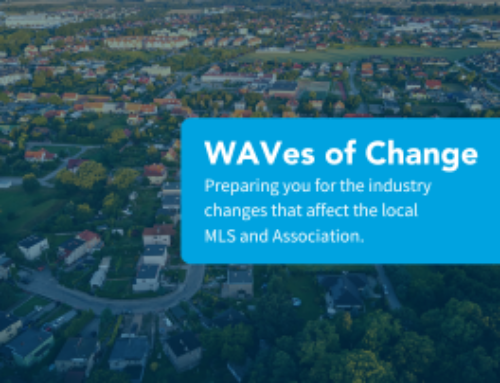The National Association of REALTORS® Midyear Legislative meetings may have reached a tipping point on the role of the MLS in real estate. To be sure, it is the battleground of our industry where brokers and associations struggle for power within the oversight of the Department of Justice. Competing MLS entities develop their operating philosophy that draws the boundaries of how everyone coexists without behaving like a monopoly.
To be sure, the MLS is a common use term that takes on a lot of different definitions. Here are the top 5 governance models that define the operating philosophy.
- Association Owned, Broker Governance
- Association Owned, Agent Governance
- Association Owned, Association Governance
- Broker Owned, Agent Governance
- Broker Owned, Broker Governance
At the heart of any MLS is the governance. It is the single most important determinate of what products constitute the MLS service and how those services are divided between Core, Basic, and Optional.
Today, there are many self-interested parties within our industry that compete in the battle to control the services of the MLS – Agents, Brokers, and Associations. Agents want everything for nothing. Small brokers are similar to agents and also want a low cost full service MLS. Big brokers just want the data. Associations just want non-dues revenue to maximize their investment in the MLS. There is nothing at all unnatural about this. An endeavor to shape your MLS to optimize your benefit is not only normal, but it would be irresponsible not to. Get involved!
MLSs compete too. Neighboring MLSs do as much to recruit, acquire, or merge as anyone. To do this, they frequently endeavor to optimize their offer – the most services for the lowest price. The more MLSs compete with one another, the more services they offer, and usually the more they begin to compete with brokers. Like MLSs, brokers also try to offer the most services with the most attractive splits for agents. As such, brokers are constantly at odds with the mls for leveling the playing field. Again, this is very natural and probably adds a healthy pressure that powers the industry forward.
There is really no such thing as a level playing ground. The bigger you are, the more power you have. The more power you have, the more money you make. There is no advantage to being small in this industry, nor is it a benefit to be thrifty. The agent, the independent contractor, is always making the decision about who wins and looses in this struggle. Granted, they do not always have Association of choice, and more rarely have MLS of choice – but they always have broker of choice.
Broker affiliation would seem to be the primary battleground, but it’s not. Agents will frequently hold volunteer leadership positions in the Association or the MLS where they are as likely to vote against their broker’s cause as they vote for their broker’s cause.
Think for a moment about all of the entities involved in organized real estate, at the largest level, they break out into Associations, Government, and brokers. Dig in further, and you find much, much more. National Association of REALTORS®, State Associations of REALTORS®, Local Associations of REALTORS®, Association owned ‘for profit’ companies, Department of Justice, HUD, State Departments of REAL ESTATE, Banks, GSEs, Franchisors, Franchise Brokers, Independent brokers, Broker Networks, Agent Networks, agents, MLSs. All of these groups are fighting for influence and control.
Now take a breath.
Somehow, our industry has found a way for all of these entities to coexist….for the most part. Perhaps it is the REALTOR® Code of Ethics or simple human nature that binds us. We are all in it together. WAV Group works hard to do a 360° assessment of satisfaction of all of these groups in our strategic planning sessions. It is one of the primary ways to table issues that MLS organizations to mitigate for success. MLSs must remain neutral, and must provide services equally to all parties concerned. The ones that do it well have our utmost respect.





